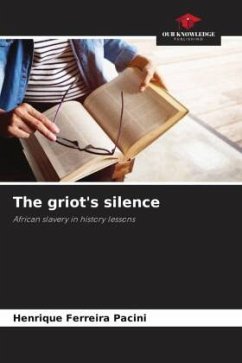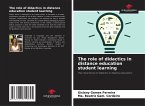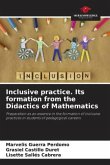For more than three centuries, African slavery persisted in Brazil, structuring the country's social relations. After Abolition, the discourse produced by the country's intellectual elites, based on the myth of racial democracy, masked the situation of oppression under which the black Brazilian population still lives today. In schools, history teaching that presents itself as liberating has often contributed to maintaining prejudices. Based on a theoretical framework anchored in Gramsci and Jorn Rüsen, Henrique Ferreira Pacini exposes the contradictions between a school history curriculum based on liberal Eurocentrism and the new narratives introduced by Brazilian legislation on ethnic-racial relations.
Bitte wählen Sie Ihr Anliegen aus.
Rechnungen
Retourenschein anfordern
Bestellstatus
Storno








